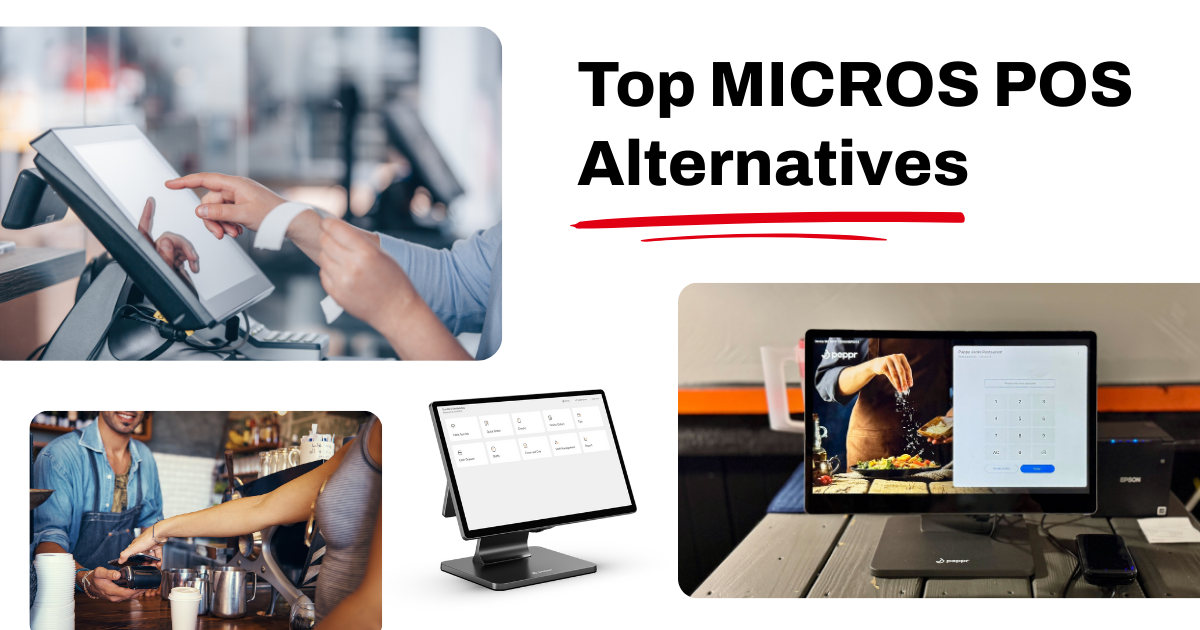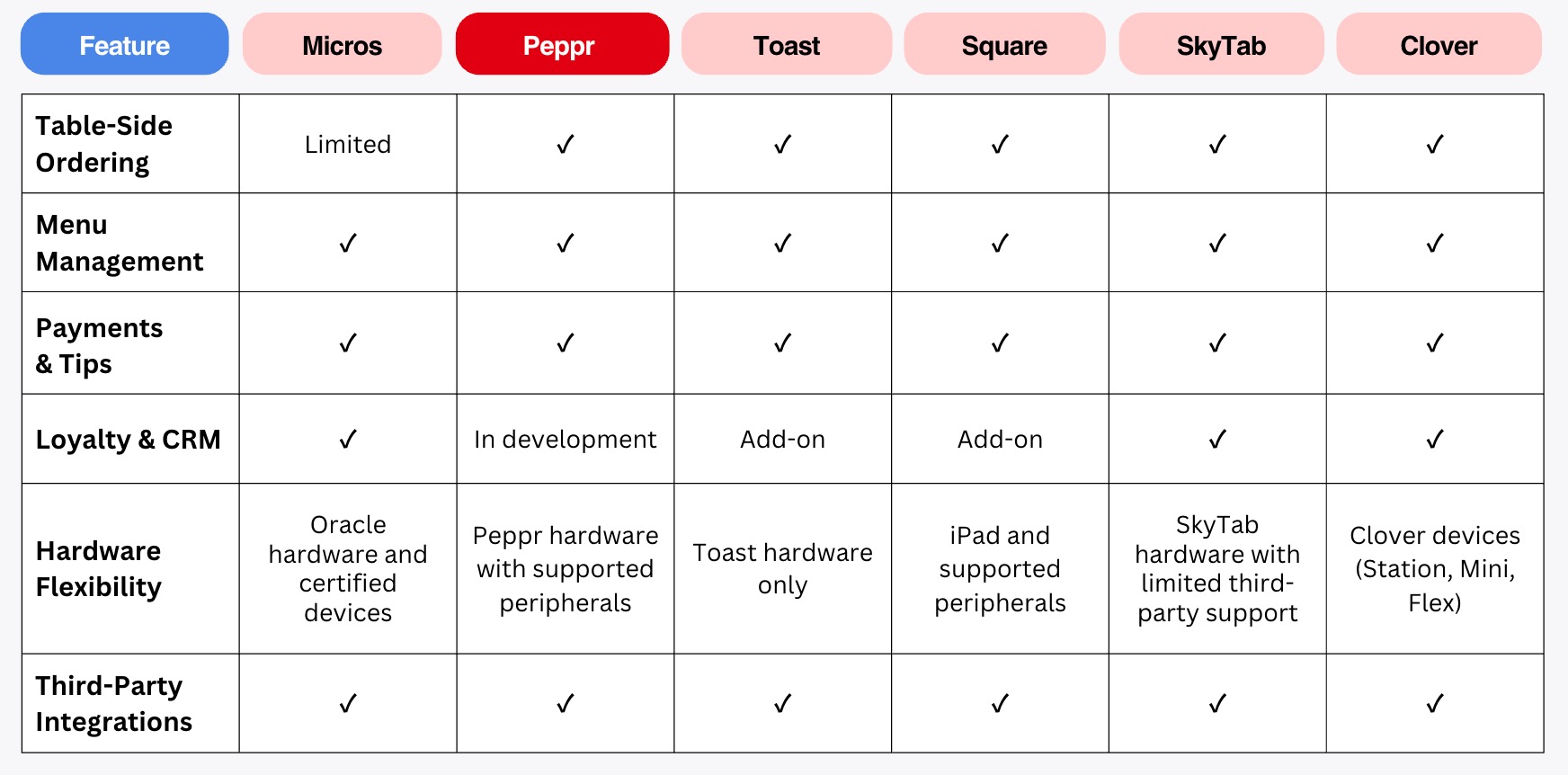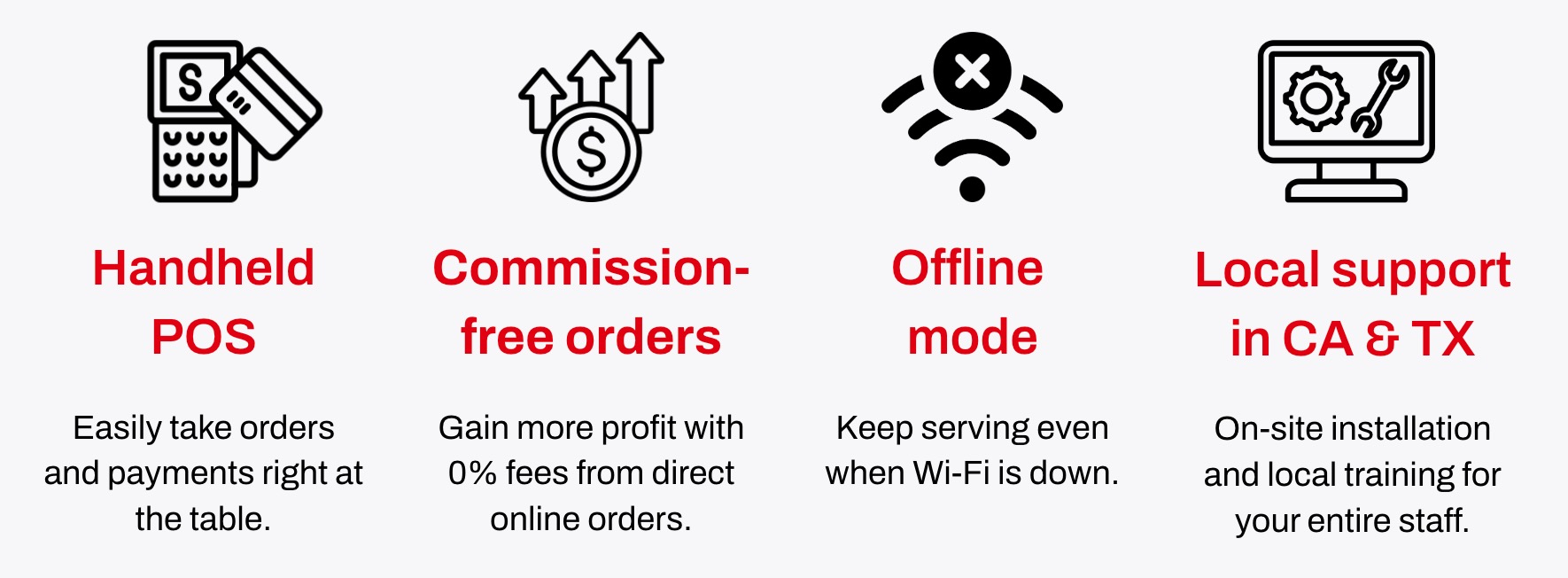Discover the best Micros POS alternatives, offering faster updates and easier integrations for restaurants.

It’s Friday night, and your restaurant is packed. But your POS just can’t keep up.
Micros once set the standard for hospitality and restaurant technology, but today’s digital-first dining environment demands more agility.
If you’re searching for the top Micros POS alternatives in 2025, you need speed, simple tools, and better margins, all while keeping your transactions secure. The good news is that switching from Micros to a modern POS doesn’t have to be a nightmare.
Let’s compare POS solutions that can give you flexibility, better integrations, and modern features to help you run smoother shifts. By the end of this guide, you’ll know which Micros POS alternatives can match your menu, your flow, and your budget.
Micros, often seen today as Oracle MICROS, has powered restaurants and hotels for decades. When Oracle acquired Micros back in 2014, the focus shifted more toward enterprise-grade functionality.
Micros’ POS system, more commonly known as the Oracle Micros Simphony, is cloud-based and powers everything from quick service to fine dining. It is designed for large-scale operations, known for its stability, deep configuration, and ability to serve big, complex operations such as hotels and multi-brand groups.
The Oracle MICROS Simphony is a comprehensive platform that offers full-service capabilities, including online ordering, kitchen display systems (KDS), analytics, and multi-location tools. It’s fully customizable and built for scale and resilience, which is why many large enterprises continue to use it today.
Pros:
Cons:
The global restaurant POS systems market is projected to reach $24.6 billion by 2029, driven by increasing adoption of cloud-based and mobile POS solutions that offer real-time updates, operational flexibility, and lower upfront costs.
That’s why many POS alternatives are emerging, as operators seek systems that better match today’s service demands.
Today’s expectations favor mobile and customer-centric tools. Independent restaurants and fast-growing local chains simply value flexibility and a cleaner monthly bill over legacy infrastructure.
Here’s how the Micros POS stacks up against today’s top contenders, so you can see which platform is the most efficient and brings the most to your front line.

LOOKING FOR THE BEST MICROS POS ALTERNATIVE FOR 2025?
Schedule a free demo with Peppr POS today.
Technology has enabled modern POS systems to be more user-friendly and cost-effective than Micros POS. These tools usually offer better integration with third-party tools and allow for easy customization and scalability without the long, complex onboarding process.
Let’s take a look at the top Oracle Micros Simphony alternatives for 2025.
The Peppr POS is purpose-built for independent restaurants that want speed without the headaches. Think handheld tableside ordering, offline mode, and commission-free online ordering. It is cloud-based and easily accessible from any device, integrating smoothly with online ordering platforms like DoorDash.
Toast is an all-in-one restaurant platform featuring proprietary hardware, 200+ integrations, and built-in payments. It also has an offline mode to keep you serving during outages.
Square keeps things simple and speedy for smaller teams: iPad-based stations, KDS, and Square-built online ordering. It is designed for smaller businesses with less complexity, is easier to set up and configure, and allows for easy hardware integration without additional costs since you can use compatible iPads and common accessories.
Note: Square KDS now runs on Android displays; iPad KDS is being migrated off.
SkyTab by Shift4 blends modern software with sturdy hardware and built-in payments. It provides detailed financial tracking and reporting tools, as well as advanced security features for EMV/contactless payments and data protection. Skytab also enables tableside and QR workflows for faster turnarounds.
Clover’s app-based ecosystem lets you tailor your POS to fit your workflow. It allows for easy customization and scalability through the Clover App Market, which is handy for adding inventory tools, online ordering, and more as your business grows.
Not the restaurant POS system you’re looking for? Read here for Aloha POS alternatives or Epos Now POS alternatives.
Peppr provides the core features you want from top Micros POS alternatives without the heavy lift.

Ready to ditch the old playbook? Peppr can help you migrate from Micros with white‑glove onboarding, menu builds, and staff training. Achieve a smooth cutover, minimal downtime, and tools that simplify service.
Book a quick, no‑pressure demo and see why many owners pick Peppr over other top Micros POS alternatives.
Modern POS systems beat Micros with faster updates, mobile access, and easier integrations. You get cloud dashboards on any device, handheld ordering, and quick menu edits, all without the need for heavy setup. They adapt more quickly, are less expensive to maintain, and align with the flexible, customer-focused service that today’s restaurants require.
Yes. You can migrate data from Micros to most modern POS platforms. Providers like Peppr offer guided migration, handling menu imports, sales history, and customer data, ensuring a smooth switchover with minimal downtime.
One of the most affordable Micros alternatives for small restaurants is Square for Restaurants. It works with iPads you may already own, has low monthly fees, and minimal setup costs.
Yes. Peppr, Toast, Square, Skytab, and Clover all have offline modes. They let you keep taking orders and payments during internet outages, similar to Micros’ local-server model, but with easier cloud syncing once you’re back online.
Yes. Mobile and tablet POS systems are reliable for busy restaurants. They speed up table turns, reduce wait times, and utilize cloud backups to prevent data loss, even in high-volume service.
Clover offers the best loyalty and CRM tools among Micros alternatives. Its App Market adds customizable programs. Skytab and Toast also have built-in options for promotions, points, and targeted marketing.
Yes. Modern Micros replacements are easy to train on. Platforms like Square, Peppr, and Clover offer intuitive layouts, quick tutorials, and built-in help guides, allowing new staff to be productive within hours.
